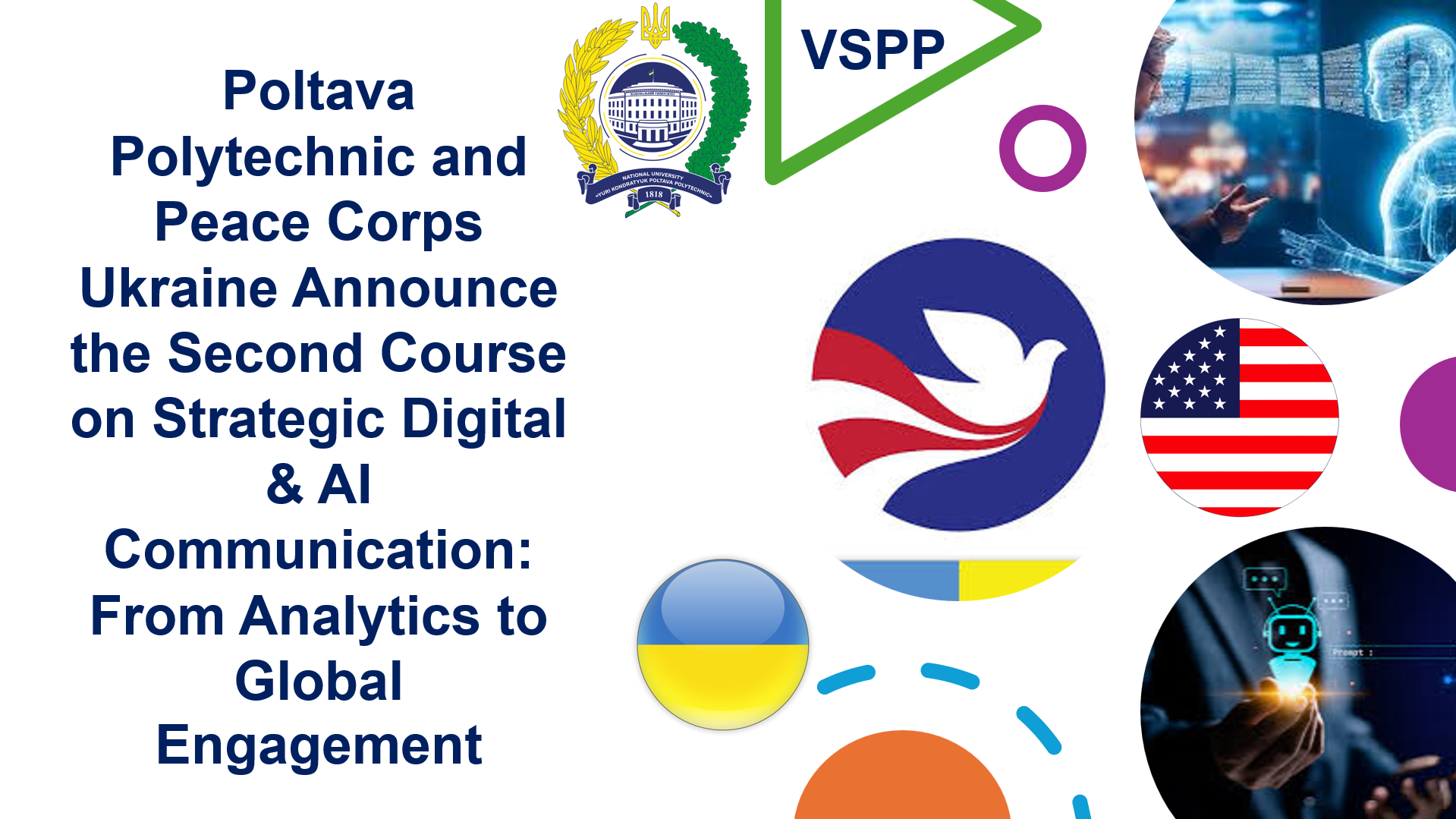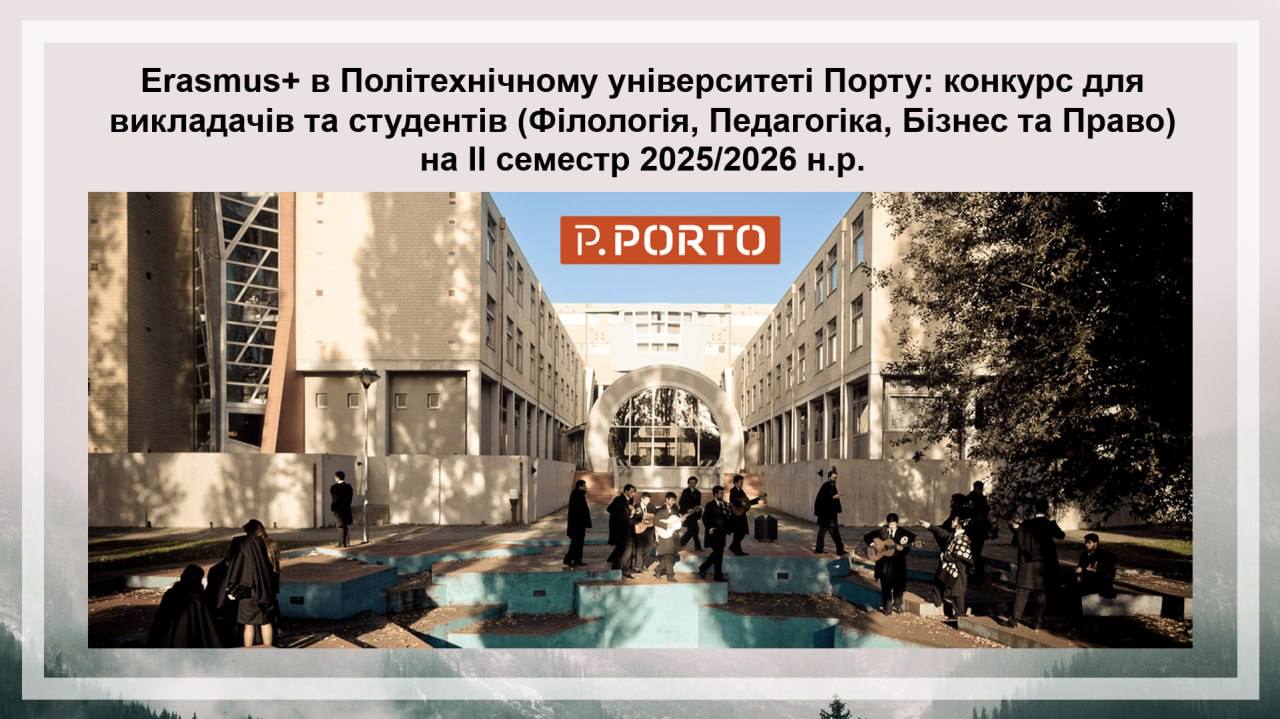From September 1 to 6, 2025, Yuliia Nikolaenko, Associate Professor of the Department of Germanic Philology and Translation at Poltava Polytechnic, Candidate of Pedagogical Sciences, Associate Professor, participated in the Erasmus+ academic mobility program at the Austrian partner university – the University of Applied Sciences Burgenland (Hochschule Burgenland). This visit marked an important milestone in strengthening educational and scientific ties between the two universities.
The main goal of the mobility program was to exchange best practices and experiences in education and science, as well as to engage in active teaching activities. At the Pinkafeld campus, Yuliia Nikolaenko conducted a series of classes on the “Intercultural Collaboration” course for third-year bachelor students of the Faculty of Energy and Environment.
During interactive lectures and discussions, students and the lecturer explored the essence of “culture”, “intercultural communication”, and “intercultural cooperation”. They learned about the differences between “multicultural”, “intercultural”, and “cross-cultural” approaches. Special attention was paid to various cultural models and their practical application for establishing contacts and effective interaction in business and daily life among representatives of different countries. The comparison of Austrian and Ukrainian cultures aroused significant interest, contributing to a deeper understanding of the characteristics of both nations.
The most significant outcome of the mobility was the expansion of cooperation between Poltava Polytechnic and the University of Applied Sciences Burgenland in the field of innovative online learning. Yuliia Nikolaenko, together with her Austrian colleague, English language lecturer Martin Jandl, continues to actively work on the COIL (Collaborative Online International Learning) project in the field of English-language intercultural communication.
During the internship, a program of joint online classes was discussed and thoroughly developed, which will be conducted for future philologists-translators of Poltava Polytechnic and students of the Faculty of Energy and Environment of the University of Applied Sciences Burgenland. These classes are scheduled to take place during October – December 2025, opening up new opportunities for students from both universities to deepen their knowledge and practical skills in intercultural communication, working on joint projects in an international environment.
International cooperation, such as the Erasmus+ program, is critically essential for a modern university. It enables the enrichment of the educational process with new knowledge and methodologies, fostering a global vision of the world in students and staff. Additionally, it develops intercultural interaction skills that are indispensable in modern multinational society and a globalised labour market.
Thanks to programs like Erasmus+, Poltava Polytechnic integrates into the global educational space, enhances its competitiveness, provides students with unique opportunities for learning and personal growth, and lecturers with professional development and experience exchange. Cooperation with the University of Applied Sciences Burgenland is an explicit confirmation of Poltava Polytechnic's commitment to the principles of internationalisation and its pursuit of excellence in education and science.
“Participation in the Erasmus+ academic mobility program is a very valuable experience of intercultural communication, immersion in a foreign language environment, and a significant contribution to further development in professional and personal spheres. Conducting classes for students, communicating with colleagues, exchanging ideas and practical cases in foreign language teaching methodology, familiarisation with Austrian culture and features of higher education in Austria inspires and enriches”, – says Yuliia Nikolaenko.
“I express my sincere gratitude to the leadership of the National University “Yurii Kondratyuk Poltava Polytechnic”, headed by President Volodymyr Onyshchenko and Rector Olena Filonych, for their constant support of the professional development of academic staff, and to Anna Pavelieva, International Relations Coordinator at Poltava Polytechnic, for her support in preparing and organising academic mobility.
Special thanks to my colleagues from the University of Applied Sciences Burgenland, especially English lecturer Martin Jandl, for the continuation of our fruitful cooperation and to the mobility coordinator from the international office, Kathrin Szabo, for her support of Ukraine and assistance in the successful implementation of my mobility program in Pinkafeld”, – Yuliia Nikolaenko summarised her trip.
Yuliia Nikolaienko previously participated in the Erasmus+ and CEEPUS academic mobility programs at the University of Applied Sciences Burgenland (Hochschule Burgenland).
Poltava Polytechnic will continue to expand its international activities, opening new opportunities for students and lecturers and contributing to the training of highly qualified specialists ready for the challenges of a globalised world.
As a reminder, faculty members of Poltava Polytechnic are eligible to participate in academic mobility and internship programs. Students can study abroad through Erasmus+ credit academic mobility grant programs for a semester or a full academic year at leading universities in Austria, Greenland, Denmark, Estonia, Finland, France, Germany, Greece, Ireland, Italy, Latvia, Lithuania, Luxembourg, the Netherlands, Norway, Poland, Portugal, Romania, Slovakia, Spain, Sweden, and the Czech Republic.
For more detailed information on current internship, teaching, and academic mobility programs abroad, please get in touch with the International Relations Office (office 213-C, interoffice@nupp.edu.ua) or the coordinator of international activities at the National University “Yuri Kondratyuk Poltava Polytechnic” – Anna Pavelieva, Ph.D. in Philology, Associate Professor of the Department of Germanic Philology and Translation (email: kunsite.zi@gmail.com, phone: +38-(095)-91-08-192).
Media Centre of
National University “Yuri Kondratyuk Poltava Polytechnic”



